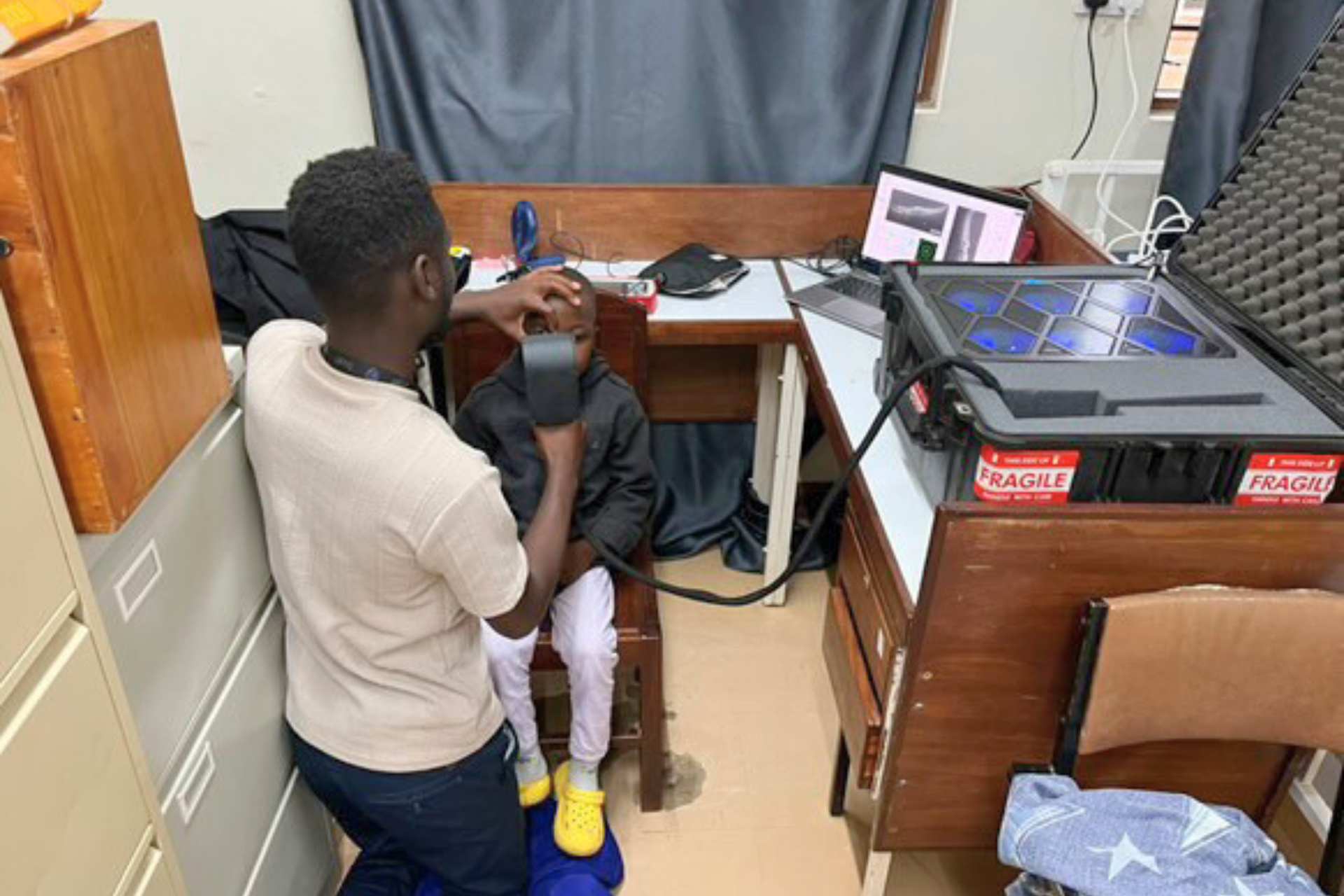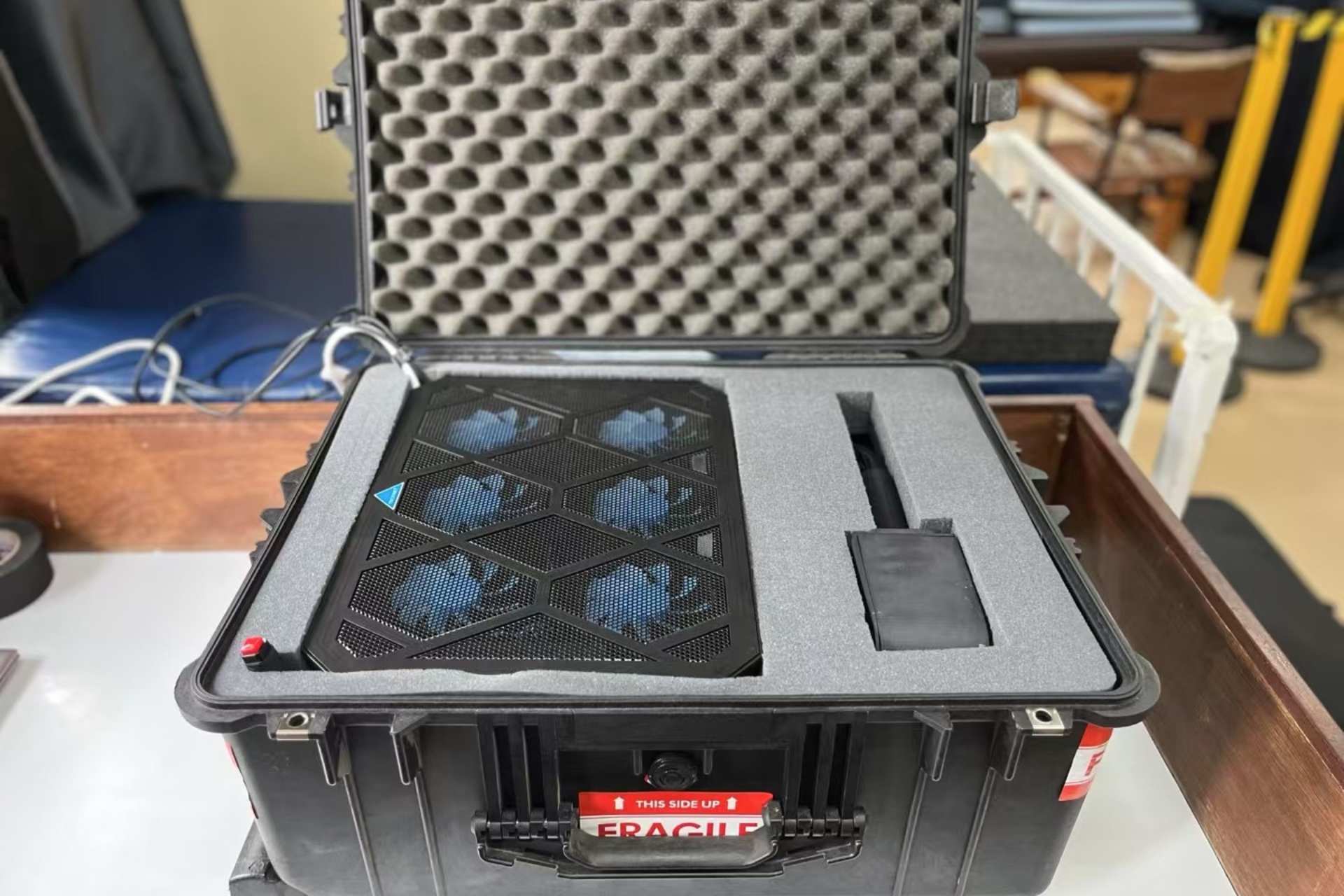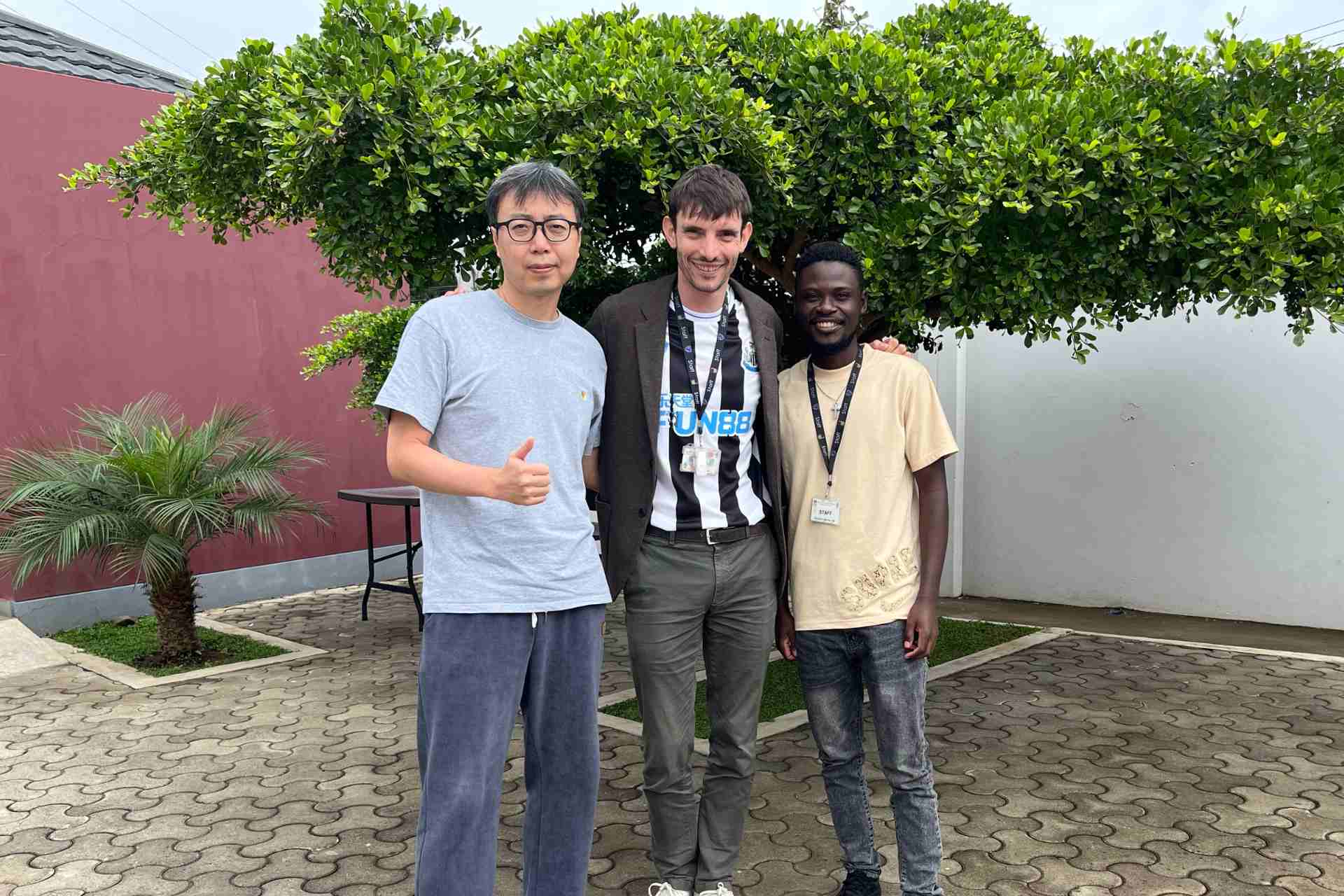Alumni-led team advances ground-breaking Malaria research

To mark World Malaria Day 2025, we’re proud to share an exciting update to a story we shared last year, spotlighting University of Liverpool alumni and researchers who are contributing to the global effort to raise awareness about this devastating disease and the urgent need for innovative solutions.
Second clinical trial conducted in Malawi
Led by Dr Nicholas Beare (MD 2006), Professor Yalin Zheng and Professor Yaochun Shen, the Liverpool-based team returned to Malawi in February and March 2025. They made some critical improvements to the UoL Handheld OCT (UoL HHOCT) scanner and were able to test it more extensively in Malawi.
Dr Beare explained that the team has now completed a proof of principle that a low-cost handheld OCT scanner can be built from off-the-shelf components in a modular design, which surpasses the imaging specifications of much more expensive commercial devices. The device fits in a medium-sized suitcase, can be transported easily, is robust, and maintenance can be undertaken locally in resource-poor settings.

UoL HHOCT deployed in Queen Elizabeth Central Hospital in Blantyre, Malawi
Dr Beare said: “This is proving to be a very successful project in terms of building the UoL HHOCT and recruiting sick children to the study. We are very excited to be finalising our data so we can determine if the OCT will be a lifesaving investigation for children critically ill with cerebral malaria.”
Alumni researchers return to frontline
Dr Beare and Dr Zijian Zhang (MSc Information and Intelligence Engineering 2011, PhD 2019) returned during Malawi’s rainy season - a time when malaria cases surge - to support the launch of the follow-up clinical study, working in close collaboration with local health workers and hospital teams.
Dr Zhang said: “Following a year of enhancements to improve image quality and usability, we brought the newly upgraded version of the UoL HHOCT device to Malawi. I’m incredibly grateful to my colleagues, Dr Kyle Wilson and Mr Owen Banda, whose expertise and experience in the field of ophthalmic imaging made this visit much smoother.”

Dr Zijian Zhang, Dr Kyle Wilson and Mr Owen Banda (l-r)
In the main clinical trial (using the commercial device), the team have recruited over 200 children with cerebral malaria, which surpasses their target. They're now analysing the data to see if the OCT scanner can identify children with severe brain swelling as accurately as an MRI scanner (not available to most children with cerebral malaria). They have analysed most of the images and are awaiting data from final recruits this malaria season. They continue to follow their recruited children for one to two years to see if OCT scans can also predict neurological injury from cerebral malaria by quantifying the extent of blockage in small blood vessels in the retina at the back of the eye, which is a surrogate for blocked blood vessels in the brain. Their work is funded by the Wellcome Trust.
As we reflect on the theme of this year’s World Malaria Day - “Malaria ends with us: Reinvest, Reimagine, Reignite”, we’re proud to spotlight the work of alumni who are not only advancing research but delivering real-world, scalable solutions to a critical public health issue.